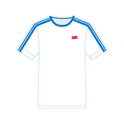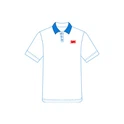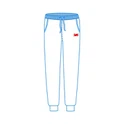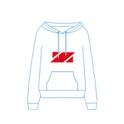What are fake jerseys called?
Introduction:
Fake jerseys, also known as counterfeit jerseys, are replicas of authentic sports jerseys that are illegally produced and sold in the market. These counterfeit jerseys may appear to be genuine, but they lack the quality and authenticity of the real ones. In this article, we will explore the world of fake jerseys, their impact on the sports industry, and how to differentiate between real and counterfeit jerseys. So, let''s dive deep and unravel the mysteries behind these fake jerseys.
The Rise of Counterfeit Jerseys:
Counterfeit jerseys have become increasingly prevalent in recent times, primarily due to the rise of online shopping and the desire to own authentic-looking sports memorabilia. The demand for sporting merchandise, especially jerseys, is enormous, which has created a lucrative market for counterfeiters.
Counterfeiters employ various deceptive tactics to replicate jerseys and sell them as authentic. These tactics include using cheap materials, employing substandard manufacturing processes, and imitating official logos and trademarks. Many people unknowingly fall victim to purchasing these fake jerseys, often paying exorbitant prices for what they believe to be genuine merchandise.
The Implications of Counterfeit Jerseys:
Counterfeit jerseys not only lead to financial loss for consumers but also have several negative implications for the sports industry as a whole. Let''s explore some of the significant implications:
1. Loss of Revenue: Counterfeit jerseys eat into the revenue streams of both sports teams and official merchandise manufacturers. When consumers purchase fake jerseys instead of authentic ones, the legitimate stakeholders lose out on potential earnings. This loss of revenue can impact the ability of sports teams to invest in players, infrastructure, and other essential aspects of the game.
2. Damage to Brand Reputation: Counterfeit jerseys tarnish the image and reputation of sports teams and official merchandise manufacturers. When consumers unknowingly wear fake jerseys, they contribute to the perception that the team or brand endorses low-quality products. This can be detrimental to the overall brand value and long-term sustainability of the sports organization.
3. Safety Concerns: Counterfeit jerseys often fail to meet safety standards and regulations. The use of cheap materials and substandard manufacturing processes can result in poor garment quality. This can lead to discomfort, skin allergies, and other health issues for the wearer. Additionally, counterfeit jerseys may not undergo the same quality control processes, leading to potential hazards such as loose threads, sharp edges, or even flammable materials.
Identifying Fake Jerseys:
Now that we understand the negative implications of counterfeit jerseys, it is essential to know how to spot them. Here are some key factors to consider when identifying fake jerseys:
1. Price Discrepancy: One of the most apparent signs of a fake jersey is an unusually low price compared to its authentic counterpart. If a deal seems too good to be true, it likely involves counterfeit merchandise.
2. Quality of Materials: Authentic jerseys are made using high-quality materials, such as moisture-wicking fabrics and durable stitching. Counterfeit jerseys, on the other hand, often feel flimsy, have loose threads, and inferior quality embroidered logos.
3. Incorrect Logos and Fonts: Counterfeiters may struggle to accurately replicate team logos, fonts, and numbering. Pay close attention to the details and compare them with official images to spot any discrepancies or irregularities.
4. Lack of Official Licensing Tags: Authentic jerseys usually have official licensing tags or holograms that certify their legitimacy. These tags ensure that the product has undergone quality checks and is officially authorized. Counterfeit jerseys often lack these tags or have poorly replicated versions.
5. Seller Reputation and Authenticity: Purchasing jerseys from trusted and authorized sellers significantly reduces the risk of buying counterfeit merchandise. Research the seller''s reputation, read customer reviews, and buy from sources that are known for selling genuine products.
Conclusion:
Counterfeit jerseys are a growing concern in the sports industry. They not only impact the financial aspects of teams and merchandise manufacturers but also pose risks to consumers'' health and safety. Being aware of the telltale signs of fake jerseys and purchasing from reputable sources can help mitigate the issue.
The sports industry, along with law enforcement agencies and intellectual property rights organizations, must work together to combat the production and sale of counterfeit jerseys. By raising awareness and taking legal action against counterfeiters, we can protect the interests of sports organizations and consumers alike.
Remember, authenticity matters! So the next time you decide to buy a sports jersey, make sure it''s the real deal. Stay informed, stay protected!







